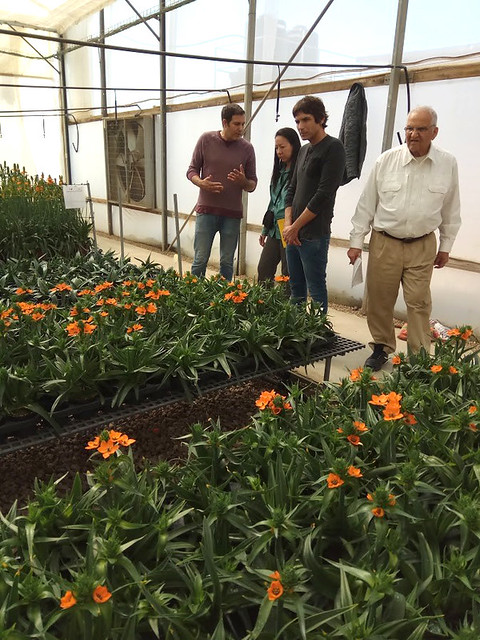
The United States Secretary of Agriculture Sonny Perdue has proclaimed April 2018 as Invasive Plant Pest and Disease Awareness Month. The goal of IPPDAM is to: increase public awareness of invasive species; provide tips to prevent their spread; and, encourage residents to report signs of them. Today we highlight USDA’s Heather Coady. Ms. Coady, and Animal and Plant Health Inspection Service (APHIS) employees like her, assist other countries in their pest control efforts by working to stop pests at the source.
I’m lucky that my career allows me to mix two of my passions – the travel bug and protecting our country against invasive pests. My passion for travel started 20 years ago when I served as a Peace Corps Volunteer in Honduras. A few years later, I began learning about invasive pests when I worked on the Asian Longhorned Beetle program. I directly saw the effects that an invasive species has in the environment. As I moved through my career at APHIS, I worked at a Plant Inspection Station, intercepting pests before they entered the U.S. I am currently stationed in the Netherlands as part of our preclearance program. I work to keep pests from being imported, working directly with our National Plant Protection Organization (NPPO) counterparts, growers and exporters.
Preclearance is the first line of defense for the U.S. -- addressing pest risks offshore. I manage eight different preclearance programs: in Netherlands, South Africa, Spain, the UK (England and Scotland), Israel, Turkey, Belgium and France. I love that I get to see the plants growing in the field before harvest. I talk with the growers and the NPPO inspectors in person and find out how the season has been, the weather, their challenges – all in real time. If we see a problem, we can help them figure out what to do right now to ensure that their plants will meet APHIS’ standards and can enter the U.S. pest and disease free.
Last December, the Royal Dutch Wholesalers Association for Flower Bulbs and Nursery Stock honored APHIS’ contributions to the Dutch flower bulb and plant trade at its annual conference. We created the Dutch flower bulb and perennial preclearance program 66 years ago to help post-World War II recovery efforts. It was the first program of its kind, and it serves as a model for dozens of other agriculture preclearance programs around the world. With this program, Dutch exporters avoid costly delays or rejections at U.S. ports and both countries benefit because plant health issues are dealt with promptly and transparently. Today, the United States is one of the top markets for Dutch flower bulbs and perennials with sales reaching approximately $120 million last year.
Trade and travel are making the world smaller, but also increasing the chance of damaging insects and pathogens entering the U.S. April is Invasive Plant Pest and Disease Awareness Month so this is the perfect time to share the many ways Americans can protect their gardens and landscapes against invasive Hungry Pests.
I want to highlight a few simple things everyone can do to keep invasive pests from spreading to new locations. When you travel internationally, declare all agriculture products to U.S. Customs and Border Protection. If you purchase plants online for your garden or home, buy from reputable sources. Avoid using invasive plant species at all costs! Remove them from your garden and don’t share them with other gardeners. Talk to other gardeners about invasives and how you plan to help in the fight against them. If you are worried that your garden will lose its luster after removing invasive plants, talk to your local native plant society or exotic pest plant council. These organizations will be able to suggest suitable replacements. Report any suspected invasive species to your county extension agent or local USDA office. And be sure to check with USDA before mailing or shipping produce, plants, or plant products into the U.S. from another country to find out what’s allowed. Find more about Hungry Pests and How They Spread – and thank you for protecting the things we love.
